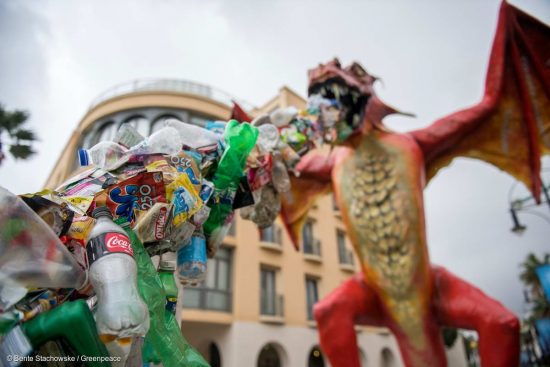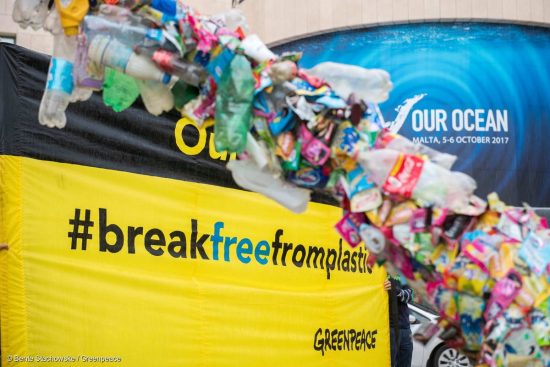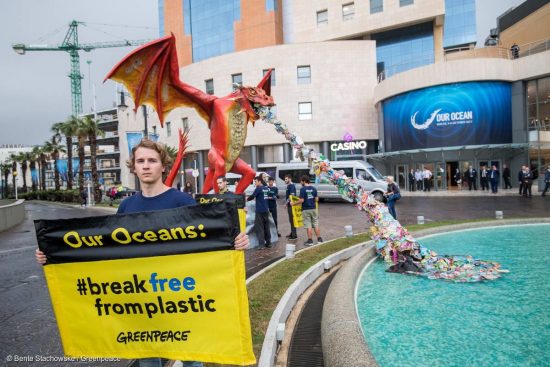




Giant dragon sculpture spits plastic garbage at ‘Our Ocean 2017’ in Malta
On 5 October 2017, Greenpeace activists and other members of the #BreakFreeFromPlastic (BFFP) movement (www.breakfreefromplastic.org) held a demonstration at the international Our Ocean 2017 conference in Malta to protest the pollution of the oceans. With them was a four-metre-high dragon sculpture depicted spewing plastic waste.
The “sputum” from the sculpture comprises disposable packaging from companies like Nestlé, Coca-Cola or Unilever, collected by environmentalists in Germany, the Philippines and other countries. Businesses and politicians are making use of the international conference to profit on the proposals of different sea protection measures (more or less meaningful measures). “Making pledges, such as those that companies are making at the 'Our Ocean' conference, are not enough. The consumer goods conglomerates are suffocating our seas with huge amounts of unnecessary disposable plastic,” marine expert Sandra Schöttner from Greenpeace Germany said. "Primarily, packaging is a problem. The companies must assume responsibility and replace disposable plastic with sustainable solutions.”
The BFFP Alliance also presented a method of evaluating plastic waste on beaches and river banks, which can be used to identify and publicise the main global polluters. After a beach clean-up covering at least 20 metres long, the plastic waste is sorted according to the waste category and manufacturer or brand, and then evaluated – sort of like a brand audit. The BFFP team then reviews the results and publishes them online at http://plasticpolluters.org. After the first successful application in September in the Philippines, subsequent audits followed in Croatia, Spain and the Netherlands. The main source of plastic waste on the beaches and river banks of these countries are consumer goods groups.
Littering the seas: recycling not solution
Every year, up to 12.7 million tons of plastic waste are flushed from land into the sea. The EU Commission is currently reviewing its waste and packaging directives and plans to publish a strategy on how to handle the plastics problem at the end of the year. Schöttner said, “We will never be able to eradicate the plastic waste crisis with recycling processes - not worldwide and not in Germany.” Even in the Federal Republic, less than 50 percent of plastic waste is recycled. However, apart from companies, governments also need to assume responsibility. Greenpeace calls on the parties elected in Germany to consider the topic of plastic waste in coalition negotiations. The next federal government must ban single-use plastics and promote multi-path systems & alternative delivery models.
The global BFFP Alliance was founded in 2016 by 900 non-governmental organisations, including Greenpeace. Their goal is for a future without plastic waste.
Further information: www.greenpeace.de
 Herbert
Herbert 7th October 2017
7th October 2017